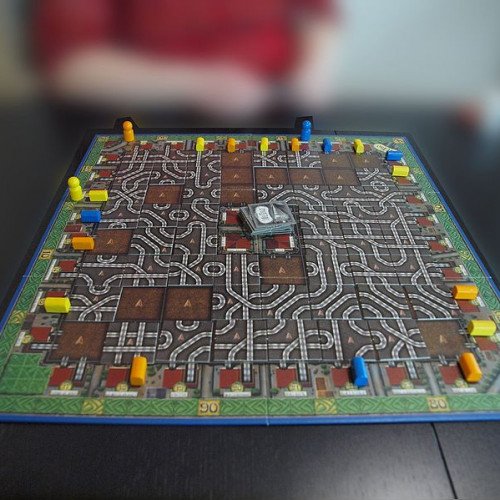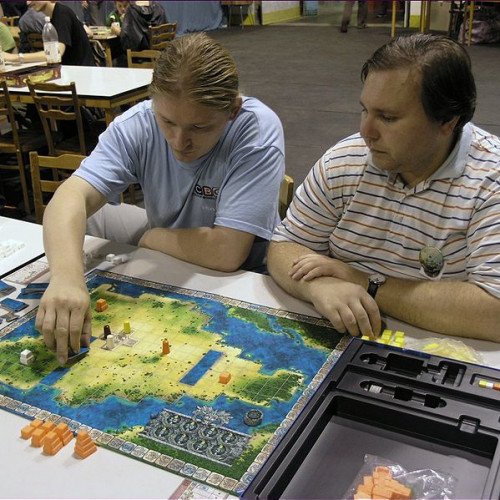"METRO" vs "MEXICA"

METRO
Metro is a board game by Dirk Henn, for 2 to 6 players. Queen Games produced the game in 2000 after Henn had published it as Iron Horse in the company db-Spiele in 1997. The game was nominated in the Spiel des Jahres awards in 2000 and was one of the finalists in the Gamers Choice Award in 2001. It was also awarded the Mensa Select award in 2001. The players take the role of metro track designers who are building the Paris Metro in 1898 to be opened in the World Fair 1900. The game board is square and consists of 10×10 places, of which the four corners remain free. The squares on the edges between the corners represent metro stations, of which each player is assigned a certain number. Connecting these stations with metro tracks earns points; the 2×2 place square in the middle represents the main stations, connecting to which earns double points. The 60 remaining squares are free to build tracks onto. The objective of the game is to build as long track connections between metro stations as possible. Each track connection earns points, and the player with the most points at the end of the game wins. The players take turns. The current player takes a track tile face down at random. The player then has a choice between placing the tile on the board or taking another tile, which they must then place on the board. If the tile placed completes one or more metro train tracks, these are scored. The turn then ends.
Statistics for this Xoptio

MEXICA
Mexica is a board game designed by Wolfgang Kramer and Michael Kiesling and published in 2002 by Ravensburger in German and Rio Grande Games in English. Mexica was awarded 5th prize in the 2002 Deutscher Spiele Preis. Mexica is the third game in the Mask Trilogy, after Tikal and Java. In the game, players attempt to partition the city of Tenochtitlan in Lake Texcoco into districts, and then gain influence over the most developed districts.